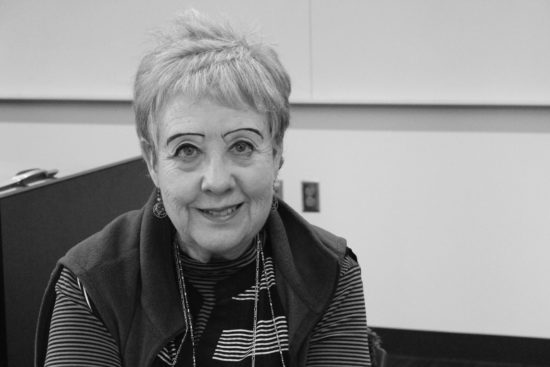
By Forrest Maynock

“Write first for yourself; delight yourself,” said Tess Gallagher as she lectured about creativity, teaching, writing as a job and her own writing to English 236-37 students on campus Tuesday, Oct. 18.
Before starting the lecture, Gallagher passed around several of her books, as well as apples from her orchard, to the creative writing students.
Gallagher is a famous poet and short story writer from Port Angeles, she was married to short story writer Raymond Carver who died in 1988. She also consulted on the 2014 Academy Award winning film, “Birdman or (The Unexpected Virtue of Ignorance).”
Gallagher started the lecture by saying, “When I worked at Syracuse University, there was a competition to get into the creative writing class there.” She described how lucky the students were to have the ability to take a class like creative writing.
“Teaching is a beautiful profession,” Gallagher said. She went on to discuss how writing is not a money-making profession, but that any writer will write regardless of the money. Gallagher also emphasized the importance for students to, “find the things you love in your writing life.”
She discussed how the Irish were great story tellers and talked about their deep culture with singing.
Gallagher said that she spends approximately a third of her time in Ireland.
“I don’t go through as many drafts as I did when I first started writing,” said Gallagher about her process.
Gallagher said that her stamina was likely down because of her age, but she still avidly writes. Gallagher mentioned that her newest book titled “Is, Is Not,” will soon be released.
Gallagher lectured for thirty minutes before reading a few of her poems.
Gallagher read these selected poems from her work: Ambition, I Stop Writing the Poem, and Your Dog Playing with a Coyote.
She also discussed the poems with the students and highlighted her favorite parts.
“Quash is a delicious word,” said Gallagher after reading her poem “Ambition.”
She discussed how the word quash was the only word that would work for that particular part of her poem.
One of Gallagher’s final statements before ending was: “Empathy is the most important thing for a writer to have.”
